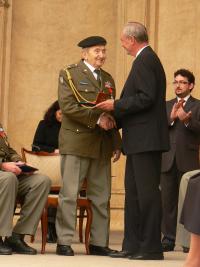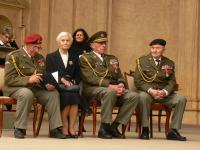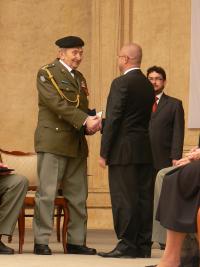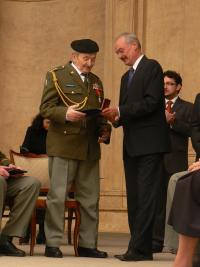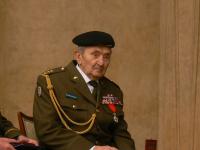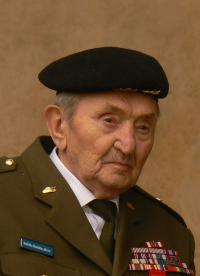May young people be proud of their country and their nation, and not only when there is a football or ice hockey match.

Stáhnout obrázek
Stanislav Hnělička was born in 1922 in Liberec, but he fled the Protectorate Bohemia and Moravia before turning eighteen in order to join the army and fight in the Middle East. He fought in Tobruk. Later he was transferred to England, where he was involved in the siege of Dunkerque. He received many decorations after 1989 and he also arranged for the construction of a dignified monument to the Czechoslovak soldiers in France. Stanislav Hnělička passed away on November, the 4th, 2016.
